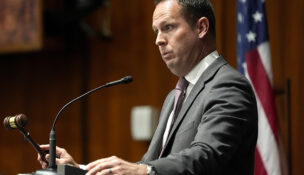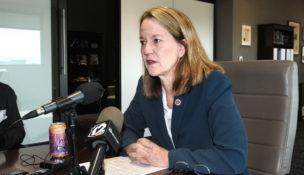Senate stays until 4 a.m. to approve budget
Arizona Capitol Reports Staff//June 5, 2009//[read_meter]
Senate stays until 4 a.m. to approve budget
Arizona Capitol Reports Staff//June 5, 2009//[read_meter]
Senate leaders worked overtime to persuade enough Republicans to finally pass a plan that is intended to close a $3-billion deficit in next year’s budget. Republican lawmakers approved the budget...
No tags for this post.

















